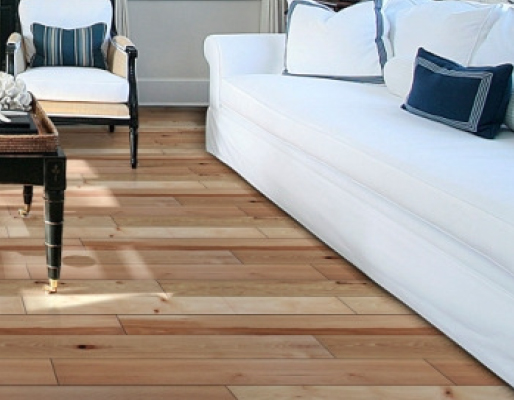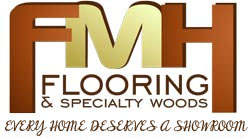Both vinyl flooring and engineered hardwood flooring can give you the rustic, natural look of wood, and without the high price. As two of the most popular flooring choices among residential and commercial property owners, they’re both great for anyone looking to improve indoor air quality. Unlike carpeting, these floors won’t trap dirt, dust, dander, or other indoor allergens. They’re also easy to clean. However, understanding the benefits and drawbacks of each is important for determining which will work best in your intended application.

One of the top factors to consider when choosing floors is the type of environment they’ll be installed in. For instance, if you’re having floors installed in a consistently humid space, you’ll want to choose the option that will stand up well to constant moisture exposure. Vinyl floors or vinyl plank floors are entirely water-resistant. Spilled drinks, sloppy mopping jobs, condensation from cooking, and overfilled sinks shouldn’t be a problem. These floors additionally stand up well to a lot of foot traffic. As such, they’re a common choice for kitchens, hallways, and living rooms, and in households that have lots of children and rambunctious pets. Vinyl floors are known for their superior scratch-resistance. However, these floors aren’t altogether indestructible. You may not want to install them in any room in which heavy, cumbersome furnishings or appliances are placed. Excessive weight can cause denting and other compression-related damages. Conversely, engineered hardwood is comprised of multiple layers. This design makes it better-suited for spaces that will contain filled bookcases, large sofas, pianos, or all-wood dressers. Like vinyl plank flooring, engineered hardwood is also fairly water-resistant. Given that the topmost layer of these floors is comprised of real wood, visible scratches can occur with furniture moving and ongoing exposure to heavy traffic.
Making Comparisons of Functional and Aesthetic Attributes
One reason why many homeowners opt for engineered hardwood flooring is its ability to very closely mimic the look of real hardwood. Despite their significantly lower cost, when engineered hardwood floors are expertly installed, they can be virtually indistinguishable from traditional, all-wood flooring. In living rooms and dining rooms, they provide comparable levels of durability. When it comes to cleaning these floors, homeowners will need to use the same level of caution and care that they would if cleaning all-wood floors. Engineered hardwood floors can be vacuumed or swept, but they should only be mopped with a damp, cloth mop and a special cleaning solution.
Vinyl gives a fair impression of hardwood and can certainly give homes a traditional, classic look. With careful study, most people can determine that these floors aren’t actually made of wood, but this definitely doesn’t detract from their overall aesthetics. Vinyl may be the ideal choice for you if you’re looking for flooring that’s quick and easy to clean. Vinyl floors can be swept, mopped, and vacuumed, and their pretty forgiving when standard floor cleaners are applied. With both vinyl and engineered hardwood, efforts to minimize direct sunlight exposure are also a part of maintenance. This is especially true when using them in brightly lit spaces. With years of constant sun exposure, both flooring types may start to fade. However, if fading occurs with engineered hardwood, it can often be reversed by simply applying a dark-colored stain.
Both options are available in a vast range of styles and colors. Given that vinyl flooring is printed, consumers can find a significantly larger range of options when shopping vinyl. Engineered hardwood comes in convincing oak, pine, and even mahogany styles among others. With its real-wood surface, it offers a rich, rustic look, and one that will endure. Ultimately, building owners who are seeking optimum levels of water-resistance and overall ease of maintenance for busy, high-traffic areas, may prefer vinyl. Homeowners who want the natural look and feel of hardwood without breaking the bank will likely want engineered hardwood flooring instead. Engineered hardwood can comfortably bear more weight, and even though it requires a bit more care, damages such as scratching, fading, and scuff marks can usually be repaired with a new finish. If you’re looking for the best floors for your home or business, we can help. Call 877-400-0213 today to schedule an onsite consultation.
